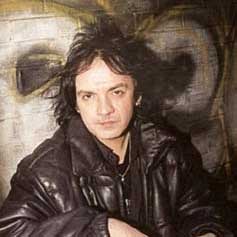It’s nearly 48 years since this writer sat in rapt awe while Genesis entranced his school’s annual Christmas party performing songs from the just-released Trespass.
A quiet presence in a sensible sweater behind his keyboard set-up, Tony Banks might have indulged the Leslie tricks favoured by fellow prog rock Hammond warriors, but his melodies were noticeably imbued with unusually sensitive, classical subtleties.
Banks was classically schooled, deploying that training to give Genesis their melodic depth beneath the flights and fantasies. Embracing synthesisers, he released the requisite solo albums through the 80s but, unlike other Genesis members, they sold few, including Bankstatement’s excursion into Mike And The Mechanics MTV pop. After finding greater aptitude composing film soundtracks, Banks, who cites Sibelius, Mahler and Ralph Vaughan Williams as eternal favourites, started revisiting his classical roots with 2004’s Seven: A Suite For Orchestra, played by the London Symphony Orchestra, followed by 2012’s Six Pieces For Orchestra, performed by the City of Prague Philharmonic (as represented on 2015’s A Chord Too Far boxset).
Somehow those feel like a warm-up for the soundscapes and complex nuances that place Five alongside similar excursions by Lord, Wakeman and Emerson. It started when Banks composed 15-minute opener Prelude To A Million Years for 2014’s Cheltenham Music Festival. Gripped by the multi- hued panoramas of fellow Charterhouse school alumnus Vaughan Williams, the album’s glittering cascades often manifest into melodies that could elevate an imaginary Genesis classic, coaxing visions of Gabriel emoting fragile surrealism beneath batwing headgear before the climax.
Ebb And Flow has a killer chorus tucked in the swirling strings of the Czech National Orchestra that enrich the album, while Renaissance reinvents an unused Genesis composition as a beautiful violin showcase. That said, it’s the cloud-busting sweep of Vaughan Williams that shines brightest throughout, Banks embracing a brave new musical future by reaching back to the past.
Fifty years ago Tony Banks started bringing pastoral English eccentricity to nascent progressive rock with Genesis. Now he’s taking this most dignified (but difficult) next giant step for any classically-grounded prog pioneer by bringing up to date and thus keeping alive the music that first inspired him. Obviously, the question will be how many prog fans are ready to take the plunge and go the whole hogweed with him, but the effort is undoubtedly worth it.

